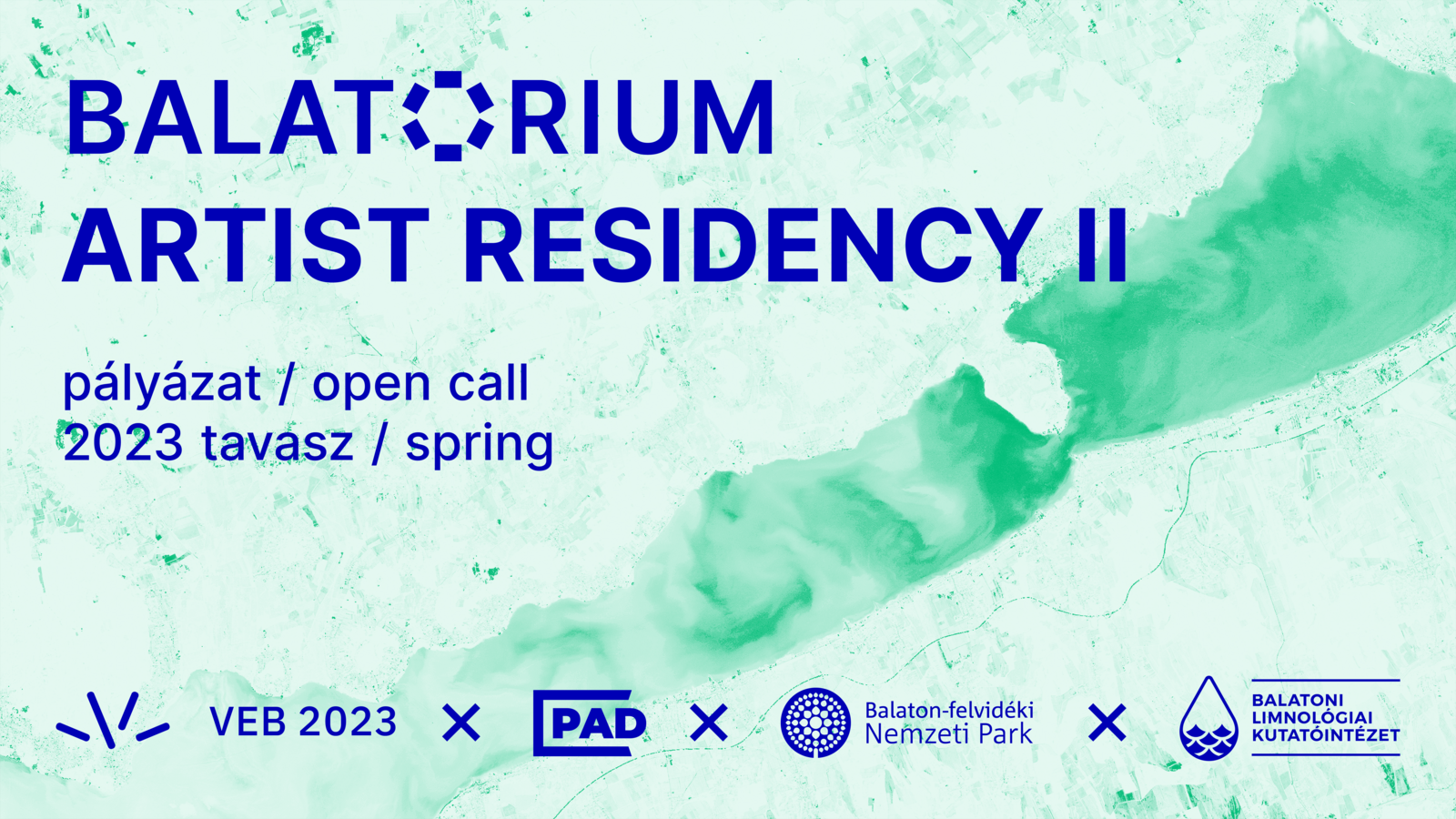Balatorium AIR II.

In the framework of the Veszprém-Balaton 2023 European Capital of Culture (VEB2023 EKF), BALATORIUM is announcing a residency programme for artists working in various media. The aim of the residency programme is to enable participating artists to create new works of art that is based on site- and context-specific research, in line with their own practice and methodology, through collaboration with researchers, experts and ecologists active in Hungary's Lake Balaton region. The second season of BALATORIUM A.I.R. will be organized in the spring of 2023, in collaboration with the Balaton Uplands National Park Directorate. Applications are open until 30 October for the BALATORIUM artist-in-residence programme II.
BALATORIUM's residency programme aims to raise awareness of the ecological challenges related to Lake Balaton and its region. The successful artists will work in dialogue with ecological experts, reflecting on the research findings for the benefit of the lake and its environment. BALATORIUM A.I.R. aims to foster connections between scientists, ecologists and creative professionals while offering a place for multidisciplinary research. Participating artists are not expected to produce artworks during their 2 weeks long stay.
Application deadline: 30 October 2022 (midnight).
The residency programme is open to artists and artist duos who create new works based on site- and context-specific research. In addition to the artist's fee, the residency programme will cover the participants' accommodation, travel and material costs, provide consultation and mentoring opportunities, curatorial and production support. The artists' works will be presented to the public at the BALATORIUM Ecology Week 2023.
The BALATORIUM project, part of the VEB2023 programme, is a complex cultural event and an awareness-raising science communication project. Its aim is to present the key ecological challenges, processes and key concepts related to Lake Balaton and its region through unique cultural programmes and additional content that are specifically reflective of the region, widely accessible and experiential.
In evaluating the applications received, the residency programme's professional jury will pay particular attention to criteria such as the professional relevance, the ecological focus of the applicant's artistic practice and practice, the relevance of the issues raised in the application and the feasibility of the concept.
Jury members: Can Togay (film director, screenwriter, actor, poet, curator); Diána Berecz, (cultural and visual anthropologist); Eva Bubla (artist activist); Anna Tudos (freelance curator); Borbála Soós (curator, Eastside Projects), Dr. András Zlinszky (ecologist) and Attila Pesti, head of department at Balaton Upland National Park Directorate, Ecotourism and Environmental Education Department and his colleagues.
The Balaton Uplands National Park, protected in 1997, stretches along the northern shore of Lake Balaton in a 1-15 km wide strip (covering an area of 57,000 hectares) and includes 6 formerly protected areas: Kis-Balaton, the Keszthely Mountains, the Tapolca Basin, the Kál Basin, the Pécsely Basin and the Tihany Peninsula. By its establishment a long-standing dream of Hungarian nature conservation has come to life by linking areas that had long been separately protected, resulting in a protected ecological system covering the whole of the Balaton Uplands and Kis-Balaton. The main activities of the Balaton-felvidéki National Park Directorate include nature conservation, landscape protection, nature management, raising awareness and ecotourism.
While the organisers are still waiting for applications for the BALATORIUM spring artist residency programme, the participants of the autumn programme are already starting to work with researchers from the Balaton Limnological Research Institute in October 2022. Péter Mátyási, Ádám Ulbert, Fuzzy Earth (Gedeon Tekla & Sebastian Gschanes), Anders Ehlin & Selma Boskailo, Marie Ouazzani & Nicolas Carrier will start collecting data and experiences for their final artwork.
The PAD Foundation is co-producing the BALATORIUM project. The other partners of the project are the Balaton-Felvidéki National Park, the Balaton Limnological Research Institute, the Moholy-Nagy University of Art and Design, the Bakony-Balaton Environmental Education Centre Association and the Limnology Research Group of the University of Pannonia.
The detailed call for the open call is available at this link: https://bazis.balatorium.hu/felhivas-open-call
Applications can be sent to [email protected] by midnight on 30 October, 2022.
The ecological x cultural concept of BALATORIUM and more details of the project are available here: https://bazis.balatorium.hu/english-summary
